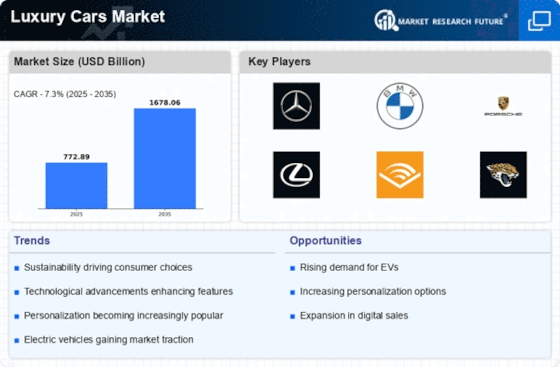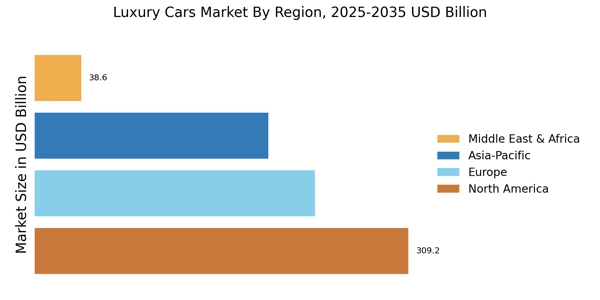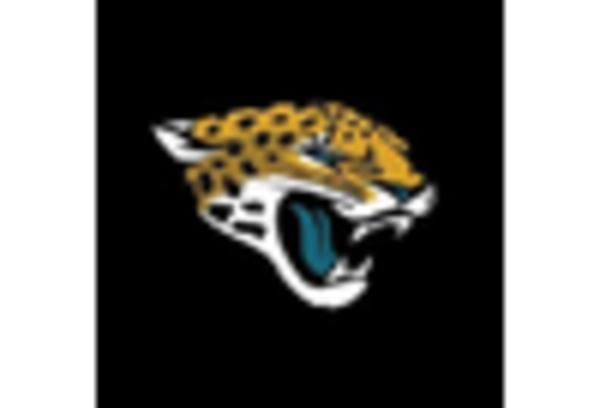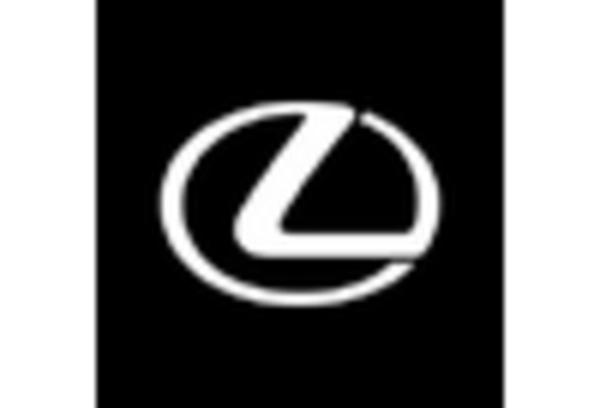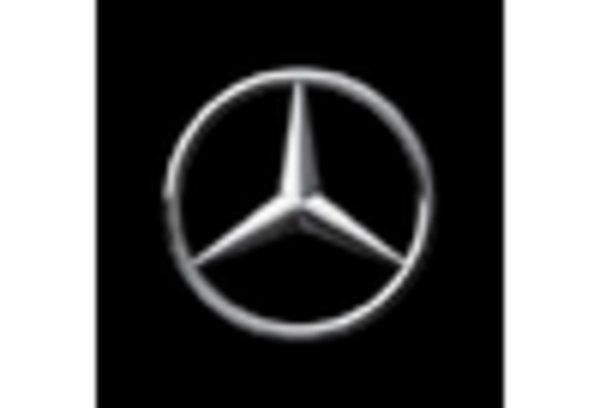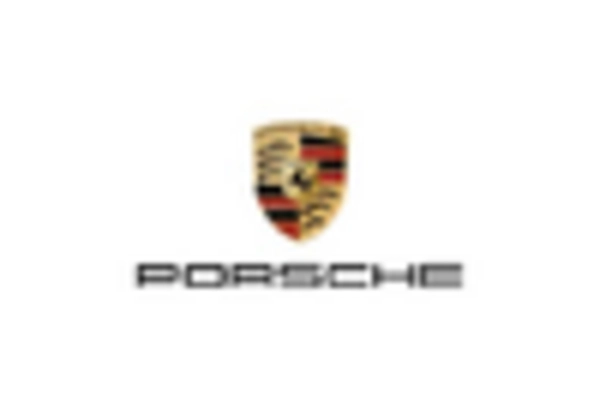The Luxury Cars Market is currently characterized by a dynamic competitive landscape, driven by a confluence of innovation, sustainability, and digital transformation. Major players such as Mercedes-Benz (DE), BMW (DE), and Porsche (DE) are at the forefront, each adopting distinct strategies to enhance their market positioning. Mercedes-Benz (DE) emphasizes electric vehicle (EV) development, aiming to transition its lineup towards a more sustainable future. BMW (DE), on the other hand, focuses on integrating advanced technology into its vehicles, enhancing user experience through digital interfaces. Porsche (DE) continues to leverage its heritage while investing in hybrid technologies, thus appealing to both traditional and modern luxury consumers. Collectively, these strategies not only intensify competition but also push the entire market towards greater innovation and sustainability. In terms of business tactics, companies are increasingly localizing manufacturing to mitigate supply chain disruptions and optimize costs. This trend is particularly evident in the luxury segment, where brands are establishing production facilities closer to key markets. The competitive structure of the Luxury Cars Market appears moderately fragmented, with a few dominant players exerting considerable influence. However, the presence of niche brands and emerging entrants adds complexity to the landscape, fostering a competitive environment that encourages differentiation through quality and innovation. In August 2025, BMW (DE) announced a strategic partnership with a leading tech firm to enhance its autonomous driving capabilities. This collaboration is poised to accelerate the development of AI-driven features, positioning BMW (DE) as a leader in the integration of cutting-edge technology within luxury vehicles. The significance of this move lies in its potential to redefine the driving experience, aligning with consumer expectations for safety and convenience in the luxury segment. In September 2025, Mercedes-Benz (DE) unveiled its ambitious plan to achieve carbon neutrality across its entire production process by 2030. This initiative underscores the company's commitment to sustainability and reflects a broader industry trend towards environmentally responsible practices. The strategic importance of this move cannot be overstated, as it not only enhances brand reputation but also aligns with the growing consumer demand for eco-friendly luxury options. In October 2025, Porsche (DE) launched a new line of electric sports cars, showcasing its commitment to performance and sustainability. This product introduction is particularly noteworthy as it signals Porsche's intent to capture a segment of the market that values both luxury and environmental consciousness. The strategic implications of this launch suggest a shift in consumer preferences, where performance is increasingly intertwined with sustainability. As of October 2025, the Luxury Cars Market is witnessing a pronounced shift towards digitalization, sustainability, and AI integration. Strategic alliances are becoming increasingly pivotal, enabling companies to pool resources and expertise in pursuit of innovation. The competitive differentiation is likely to evolve, moving away from traditional price-based competition towards a focus on technological advancement, sustainability, and supply chain reliability. This transition indicates that the future of luxury automotive competition will hinge on the ability to innovate and adapt to changing consumer expectations.


